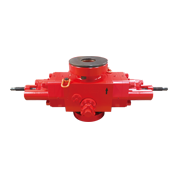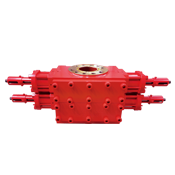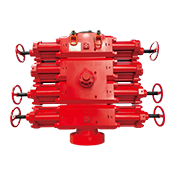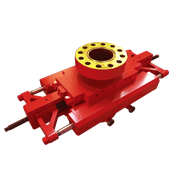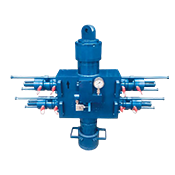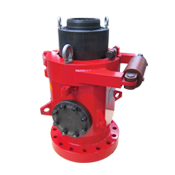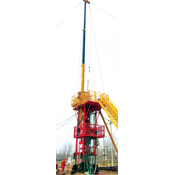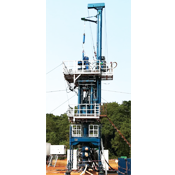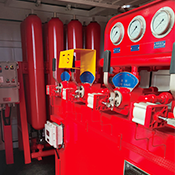Maximize Safety on the Farm with In Stock Active Rotary Blowout Preventers
2024-11-11
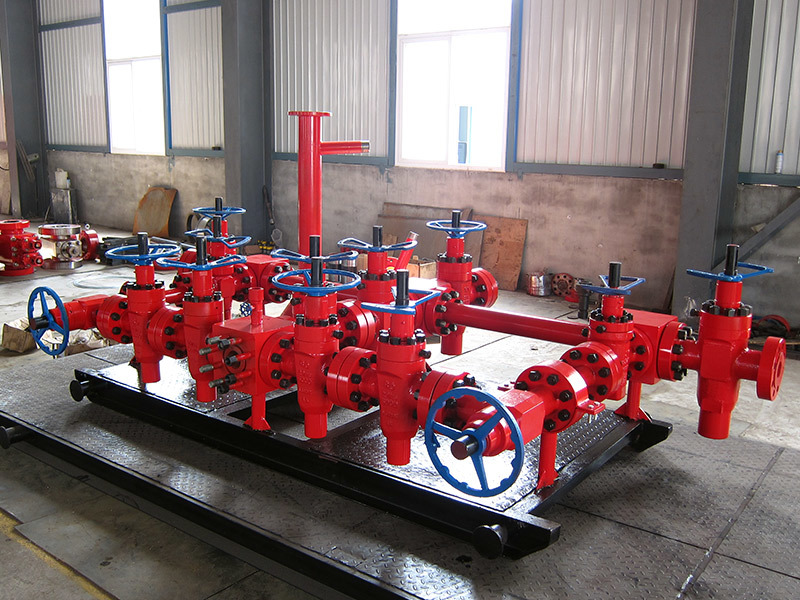
Maximize Safety on the Farm with In Stock Active Rotary Blowout Preventers
In the world of agriculture, safety is paramount. With the increasing complexity of farming operations and the heavy machinery involved, it is essential to implement robust safety measures. One critical piece of equipment that can significantly enhance safety on the farm is the active rotary blowout preventer. In this article, we will delve into the features, benefits, and best practices related to these devices, ensuring that you have all the information necessary to make informed decisions for your farming operations.
Table of Contents
- Understanding Blowout Preventers
- Importance of Farm Safety
- How Active Rotary Blowout Preventers Work
- Benefits of Active Rotary Blowout Preventers
- Choosing the Right Blowout Preventer for Your Farm
- Best Practices for Operating Blowout Preventers
- Maintenance and Inspection of Blowout Preventers
- Frequently Asked Questions
- Conclusion
Understanding Blowout Preventers
Blowout preventers (BOPs) are safety devices used in various industries, including agriculture, to prevent the uncontrolled release of fluids and gases. These devices are crucial in scenarios where high pressure is present, particularly during drilling or excavation activities. An active rotary blowout preventer is specifically designed for rotating drilling operations, providing enhanced control over potential blowouts.
The Mechanics Behind Blowout Preventers
Active rotary blowout preventers function by sealing the wellbore to control the flow of fluids and gases. When pressure surges occur, these devices automatically engage to prevent blowouts. They typically consist of a series of valves and seals that work together to maintain well integrity. Understanding how these systems operate is vital for ensuring effective usage and maximizing safety on the farm.
Importance of Farm Safety
Farm safety is an indispensable aspect of agricultural operations. With heavy machinery, hazardous materials, and unpredictable weather conditions, farms face numerous risks daily. Maximizing safety not only protects workers but also enhances productivity and minimizes equipment damage. Implementing advanced safety measures, such as active rotary blowout preventers, is an essential step in safeguarding your farm.
Reducing Risks and Enhancing Operational Efficiency
By incorporating blowout preventers into your operations, you can significantly reduce the risk of accidents. These devices help maintain pressure control, preventing the sudden release of fluids that can lead to catastrophic events. Additionally, a safer work environment fosters greater employee morale and efficiency, making safety a priority that pays dividends in productivity.
How Active Rotary Blowout Preventers Work
The operation of active rotary blowout preventers involves several key components and mechanisms. Understanding these elements helps in grasping their functionality and effectiveness in preventing blowouts.
Key Components
- Control System: The control system monitors pressure levels and engages the blowout preventer when necessary.
- Sealing Mechanism: This includes rubber or metal seals that close off the wellbore to prevent fluid escape.
- Hydraulic System: Many blowout preventers utilize hydraulic pressure to activate the sealing mechanisms, ensuring rapid response in emergencies.
Operating Principles
When a pressure spike occurs, sensors trigger the control system, activating the hydraulic system to close the seals quickly. This immediate response is crucial in preventing blowouts and maintaining safety throughout the operation. Regular training for your team on the operation of these devices is essential for effective use.
Benefits of Active Rotary Blowout Preventers
Employing active rotary blowout preventers on your farm provides numerous advantages that contribute to a safer working environment.
Enhanced Safety Measures
The primary benefit of these devices is the enhanced safety they offer. By preventing blowouts, you protect not only your equipment but also your workers from potentially dangerous situations.
Cost Savings
While there is an initial investment associated with acquiring active rotary blowout preventers, the long-term savings from preventing damage and accidents far outweigh these costs. Avoiding equipment failure and the subsequent downtime can significantly enhance your farm's profitability.
Regulatory Compliance
In many regions, strict regulations govern safety standards on farms. Utilizing blowout preventers helps ensure compliance with these regulations, reducing the risk of fines and legal issues.
Choosing the Right Blowout Preventer for Your Farm
Selecting the appropriate active rotary blowout preventer involves several considerations to ensure it meets your specific needs.
Assess Your Operational Needs
Evaluate the types of operations conducted on your farm. Different tasks may require various specifications in blowout preventers. Understanding your unique requirements is the first step in making an informed decision.
Consider Manufacturer Reputation
Not all blowout preventers are created equal. Researching and selecting reputable manufacturers known for their quality and reliability is crucial. Look for customer reviews and industry certifications to gauge the performance of the models you are considering.
Best Practices for Operating Blowout Preventers
To maximize the effectiveness of active rotary blowout preventers, it is essential to follow best practices during their operation.
Regular Training for Staff
Ensure that all staff members who operate or maintain blowout preventers receive proper training. This includes understanding how to monitor pressure levels and respond to emergencies effectively.
Conduct Routine Inspections
Regular inspections of blowout preventers are crucial for identifying any wear or damage. Implement a routine maintenance schedule to ensure these devices remain in optimal condition.
Maintenance and Inspection of Blowout Preventers
Proper maintenance is vital for the longevity and effectiveness of active rotary blowout preventers. Let’s explore the key aspects of maintenance and inspection.
Scheduled Maintenance
Establish a maintenance schedule that includes routine checks of all components, hydraulic systems, and seals. Address any issues immediately to prevent operational failures.
Documentation and Record Keeping
Maintaining detailed records of inspections and maintenance activities helps track the performance of your blowout preventers. This documentation is also beneficial for compliance with safety regulations.
Frequently Asked Questions
1. What is the primary function of an active rotary blowout preventer?
The primary function of an active rotary blowout preventer is to prevent uncontrolled releases of fluids and gases during drilling operations, ensuring safety on the farm.
2. How do I know when to engage the blowout preventer?
Monitoring pressure levels is crucial. If a sudden increase in pressure is detected, the blowout preventer should be engaged immediately to prevent a blowout.
3. Are there different types of blowout preventers available?
Yes, there are various types of blowout preventers designed for different applications. It’s essential to choose one that fits your specific operational needs.
4. How often should I perform maintenance on my blowout preventer?
Routine inspections and maintenance should be conducted regularly, typically every few months, depending on usage and manufacturer recommendations.
5. Can blowout preventers be repaired if they malfunction?
Yes, many components of blowout preventers can be repaired or replaced. However, it’s essential to consult a professional to ensure safe and effective repairs.
Conclusion
Implementing active rotary blowout preventers on your farm is a proactive step towards maximizing safety and operational efficiency. By understanding their functionality, benefits, and maintenance, you can significantly reduce risks associated with farming operations. Investing in quality blowout preventers not only protects your workers and equipment but also ensures compliance with safety regulations, ultimately leading to a more productive and safer farming environment. Embrace this critical safety measure and take your farm operations to the next level.
Related News
Contact Us
Mailbox:
tiehu@tiehupetro.com
Telephone:
86-317-2616808
Address:
Yanling Industrial Zone, Renqiu City, Cangzhou City, Hebei Province, China

